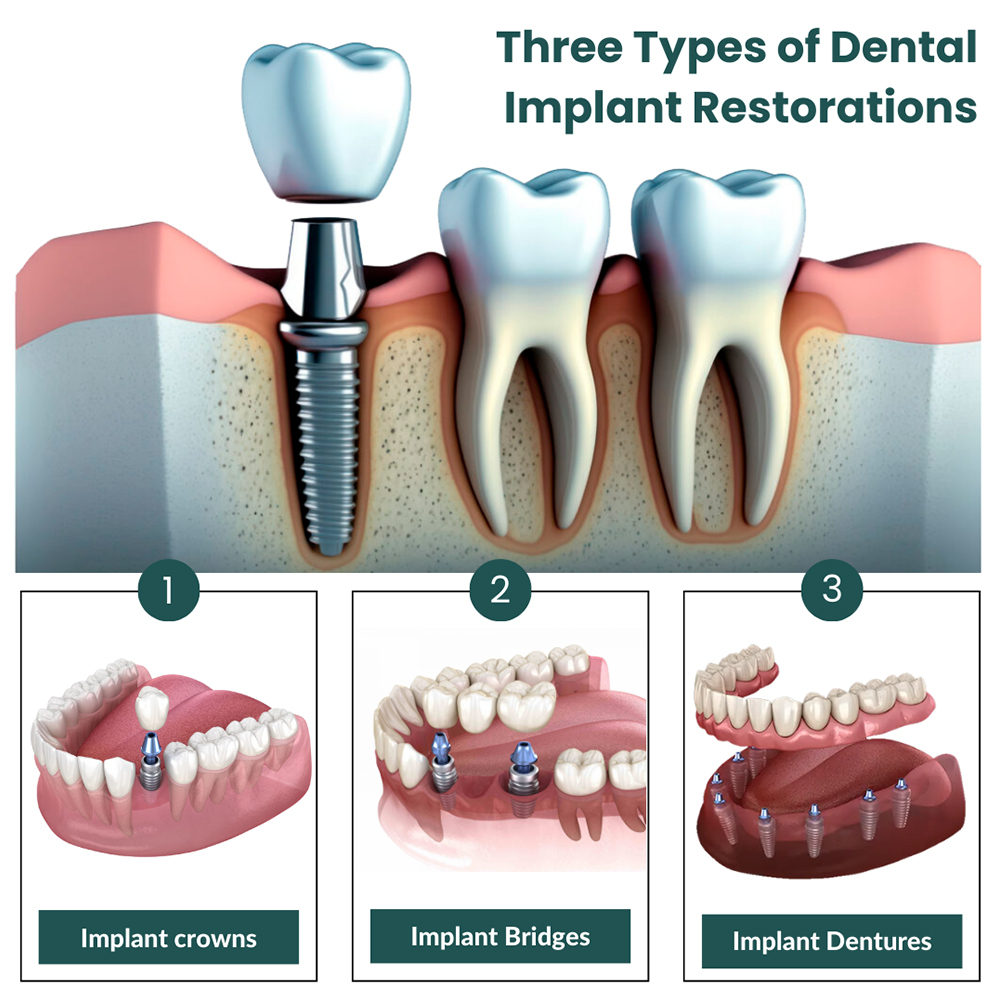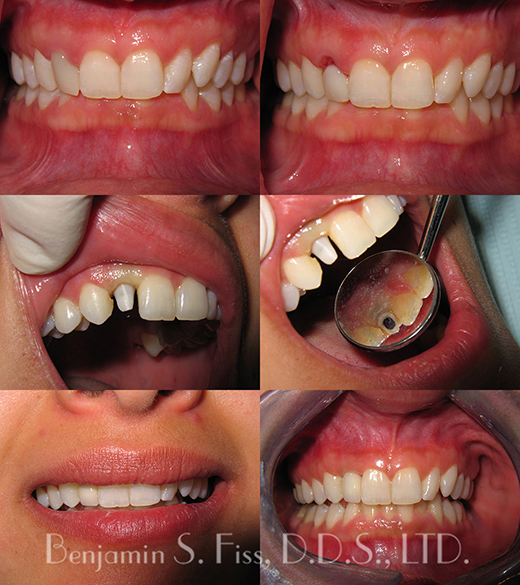What Does Dental Sense Mean?
What Does Dental Sense Mean?
Blog Article
The 9-Second Trick For Dental Sense
Table of ContentsThings about Dental SenseNot known Facts About Dental SenseDental Sense - TruthsThe Best Strategy To Use For Dental Sense
are clinical tools surgically implanted into the jaw to recover an individual's capability to chew or their appearance. They provide support for synthetic (fake) teeth, such as crowns, bridges, or dentures. When a tooth is shed as a result of injury or illness, an individual can experience problems such as rapid bone loss, malfunctioning speech, or changes to eating patterns that result in pain.Oral dental implant systems are composed of an oral implant body and dental implant abutment and may additionally consist of a joint addiction screw. Dental implants. The dental implant body is operatively inserted in the jawbone instead of the tooth's root. The dental implant abutment is typically connected to the dental implant body by the joint addiction screw and expands via gum tissues into the mouth to sustain the affixed synthetic teeth
(https://dentalsense1.carrd.co/)Framework of The Oral Implant System selecting dental implants, talk to your oral supplier about the possible benefits and risks, and whether you are a prospect for the treatment. Things to consider: Your overall health and wellness is a crucial factor in identifying whether you are a good prospect for dental implants, how much time it will require to recover, and how much time the dental implant might stay in place.
Smoking may affect the recovery process and reduce the long-lasting success of the dental implant. The healing process for the dental implant body might take several months or longer, during which time you typically have a short-term joint instead of the tooth. the dental implant treatment: Thoroughly follow the oral hygiene instructions provided to you by your dental service provider.
The 10-Second Trick For Dental Sense
Implant failure can cause the need for one more medical treatment to deal with or replace the dental implant system. Restores the capacity to eat Recovers aesthetic appearance Aids keep the jawbone from diminishing because of bone loss Preserves the health and wellness of the surrounding bone and periodontals Assists maintain surrounding (nearby) teeth stable Enhances lifestyle Damages to bordering natural teeth throughout implant positioning Injury to the surrounding cells throughout surgery, such as sinus opening Injury during surgery (for example, fracture of bordering jawbone) Insufficient function, such as feeling like the teeth do not bite with each other normally An experience that the tooth is loosened or turning in area resulting from an abutment screw loosening Implant body failing (looseness of the dental implant body) due to systemic infection, which might be much more likely in clients with unchecked diabetes mellitus due to regional infection in bone and gum tissues supporting the dental implant body as a result of delayed healing, which might be most likely in individuals who smoke his comment is here Problem cleansing the periodontals around the dental implant, causing poor dental hygiene Untreated gum illness Post-surgical numbness due to nerve impingement or damages Constantly notify healthcare suppliers and imaging specialists that you have dental implants before any type of magnetic resonance imaging (MRI) or x-ray treatments.
FDA is not familiar with any type of damaging occasions reported for MRI or x-ray procedures with oral implants. Dental implants systems are generally made from materials that follow worldwide agreement criteria of the International Organization for Standardization (ISO) or ASTM International. These standards have information of what makes a safe product.

A dental implant is a framework that replaces a missing out on tooth. With screw-like tools, the specialist inserts a dental implant right into the jawbone, and it acts as a support for a man-made tooth, called a crown.
The Only Guide to Dental Sense
Some individuals are not eligible for dental implant surgical procedure. It is for oral cosmetic surgeons to operate individuals with: severe illnessuncontrollable metabolic diseasebone or soft tissue illness or infectionIf these problems are resolved, a person can have the surgery. In, oral surgeons avoid operating on individuals with: If people with any of the above undertake dental implant surgical procedure, there is a greater threat of the implant failing.

Dental implant surgical procedure is a personalized procedure. It's not the same for everyone. The adhering to offers a basic summary of what you can expect your dentist, oral cosmetic surgeon, periodontist or prosthodontist to do: Place the dental implant surgically. Provide you time to recover. Connect the blog post and last crown, bridge or denture.
Next off, your doctor will very carefully position the oral implant into your jaw. If your dental implant is near the front of your mouth, your dental professional will certainly make a short-term tooth for you to put on up until you heal.
4 Easy Facts About Dental Sense Shown
Your service provider can inform you what to anticipate in your circumstance. During the healing stage, your jawbone needs to fuse to the dental implant. This procedure, called osseointegration, is essential for stability and long-lasting success. This process can take anywhere from 3 to 9 months. In some situations, it may take longer.
When your implant heals, your dental practitioner can affix the joint (small connector post) and your final reconstruction (crown, bridge or denture). This generally takes concerning one hour to finish and might call for a second small surgery. You should not really feel any type of discomfort throughout your oral implant procedure since your supplier will certainly use medicine to numb your gum tissues.
Report this page